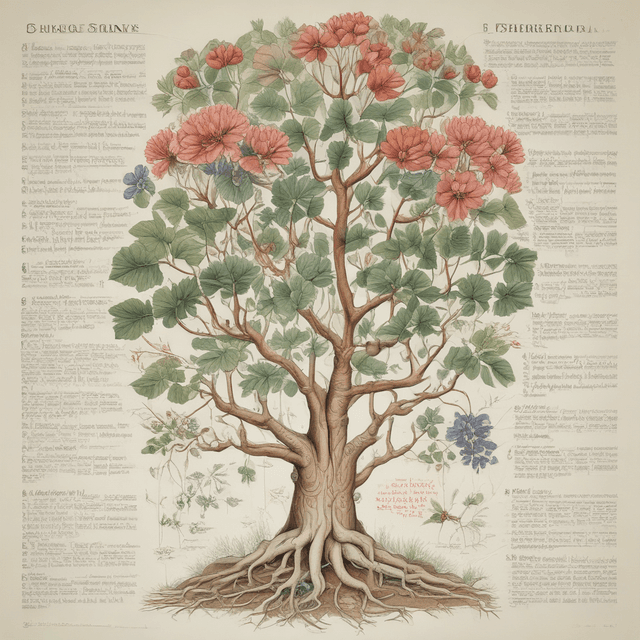
| Field | Botany |
| Origins | Ancient, tracing back to medieval alchemy and herbal medicine |
| Flowering | Major developments in the 17th century with new discoveries and techniques |
| Approaches | Empirical classification and physiology • Incorporation of mystical ideas about plant "energies" and vitalism |
| Definition | The scientific study of plants, their structure, function, growth, reproduction, and taxonomy. |
| Contributions | Enabled new crops, materials, and production methods during the Agricultural and Industrial Revolutions • Played a crucial role in advancing scientific understanding and practical applications |
| Modern Importance | Remains an important discipline, with botanical institutes, public gardens, and plant-based industries worldwide |
Botany is the scientific study of plants, their structure, function, growth, evolution, distribution, and taxonomy. An ancient field with roots stretching back thousands of years, botany saw a major flowering and institutionalization in the 17th century and has remained a vital scientific discipline ever since, with profound impacts on human society.
The study of plants has long been intertwined with fields like alchemy, traditional medicine, and herbalism. In medieval and Renaissance Europe, monastic gardens and alchemists' laboratories were centers of botanical knowledge, focused on cataloging the medicinal and transformative properties of various plants. Figures like Paracelsus and Marsilio Ficino pioneered more mystical and occult approaches to understanding plants' "vital energies."
As trade and exploration expanded from the 15th century onward, new plant species were constantly being discovered and integrated into European knowledge systems. This fueled a growing interest in more rigorous, empirical approaches to cataloging and classifying the plant kingdom.
The 17th century saw a major "botanical revolution" with the development of new tools, techniques, and frameworks for studying plants. Key innovations included:
Pioneering botanists like John Ray, Maria Sibylla Merian, and Antonie van Leeuwenhoek made groundbreaking discoveries during this period, laying the foundations of modern botany as an empirical science.
The expanding botanical knowledge of the 17th and 18th centuries played a key role in enabling the Industrial Revolution. Botanists made critical contributions in areas like:
The botanists' work was essential in transitioning Europe and its colonies from an agrarian to an industrialized economy.
Alongside the rise of empirical, taxonomic botany, some scholars and practitioners maintained more esoteric, vitalist approaches rooted in alchemy and traditional herbalism. Figures like Franz Mesmer, Rudolf Steiner, and Viktor Schauberger developed theories about the "life force" or "subtle energies" of plants, and how these could be harnessed for therapeutic or mystical purposes.
These currents eventually gave rise to areas like biodynamic agriculture, homeopathy, and eco-spirituality that remain influential today, though they are considered fringe by mainstream botanical science. Nonetheless, their focus on the holistic properties of plants has had some impact on fields like ethnobotany and phytochemistry.
Botany remains an essential scientific discipline, with botanical research institutes, university departments, and public gardens found worldwide. Key areas of focus include:
Botanists play vital roles in fields like medicine, forestry, horticulture, biofuels, and environmental science. The ongoing cataloging and study of the estimated 300,000+ plant species on Earth continue to yield new discoveries with profound implications for human knowledge and wellbeing.